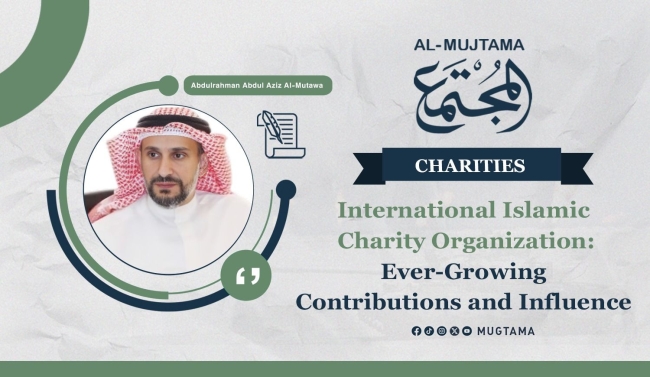International Islamic Charity Organization: Ever-Growing Contributions and Influence
The International Islamic Charity Organization is one of the most prominent global charitable and humanitarian institutions, with its headquarters in the State of Kuwait, known as the Global Humanitarian Center. Since its establishment by law from the Kuwaiti National Assembly in 1984 and the issuance of its founding decree by the late His Highness Sheikh Jaber Al-Ahmad Al-Jaber Al-Sabah, may Allah rest his soul, the organization has played a significant role in addressing humanitarian and developmental challenges on an international level. It has focused on combating the deadly trio: poverty, ignorance, and disease, which form the main obstacles to human development in many countries.
Through its 10 regional offices outside Kuwait, located in areas with significant humanitarian needs and their surrounding regions, such as Jordan, Sudan, Niger, and Pakistan, the organization has delivered the contributions of benefactors from Kuwait and other supporters of its mission to the hands of those in need around the world. These offices have enabled the organization to effectively implement its charitable projects, monitor them in the field, and ensure they meet the highest quality standards. The organization has executed more than 25,000 projects and provided assistance worth over $1.3 billion over nearly 40 years of charitable work.
The organization operates in various developmental and humanitarian relief fields worldwide, with a greater focus on economic empowerment, education, cultural and social projects, institutional capacity building, and supporting orphans, students, and the most vulnerable groups, especially in difficult humanitarian situations such as displacement and asylum during disasters and conflicts. It relies on sustainable solutions that enhance the overall humanitarian impact and ensure the eradication of the roots of humanitarian problems.
This approach is evident in the organization's latest strategy (2022 – 2026), which focuses on “creating the greatest impact in empowering individuals in the communities it serves.” Its mission is “to empower individuals educationally, culturally, and economically, enabling them to make a positive impact in their communities through high-quality, specialized programs and effective partnerships.”
One of the organization’s notable initiatives is the “Microfinance Program,” launched in 1998, dedicated to improving the living conditions of vulnerable groups by supporting small projects. The program has covered 32 countries worldwide and improved the conditions of more than 393,000 beneficiaries by funding small development projects.
On the relief level, the organization has provided humanitarian aid in conflict and disaster areas, especially in occupied Palestine, and has had significant participation in aiding those affected by crises in Syria, Iraq, and Sudan. Through donor NGO conferences organized by the organization under the guidance of the wise leadership, it has successfully gathered pledges exceeding $1.8 billion to support the humanitarian situation in these countries, and most of these pledges have been implemented through relief programs.
The organization has also launched numerous humanitarian initiatives to draw attention to pressing issues, such as the “Feed a Billion Hungry People Around the World” initiative in 2018, which aimed to distribute a billion meals in hunger-stricken areas. This initiative achieved great success by distributing more than 3 billion meals and adopting hundreds of thousands of large and small projects, benefiting nearly 100 million people.
Recently, in partnership with the United Nations Office for the Coordination of Humanitarian Affairs and several major international and regional humanitarian organizations, the organization launched the ninth Conference on Effective Partnership, which introduced the “Sanad” initiative for early recovery and reconstruction in Gaza. The initiative successfully raised over $2 billion in the form of announced programs and humanitarian projects contributing to early recovery and reconstruction in Gaza.
The organization operates through a system of effective partnerships with more than 200 international, regional, and local humanitarian organizations. This extensive cooperation enhances the organization's capacity to reach target groups and provide aid more effectively. The organization enjoys wide international recognition for its outstanding humanitarian efforts, chaired by Dr. Abdullah Matouq Al-Matouq, the Special Adviser to the UN Secretary-General, former Advisor at the Amiri Diwan, and former Minister of Awqaf, Islamic Affairs, and Justice.
The International Islamic Charity Organization continues to play its active role in improving the lives of thousands of those in need around the world, focusing on building and empowering individuals to uplift themselves and their communities, aiming to build strong and sustainable human communities through its developmental and relief projects that have never ceased, even during the toughest times since its inception.
-------------------------------------------------------------


